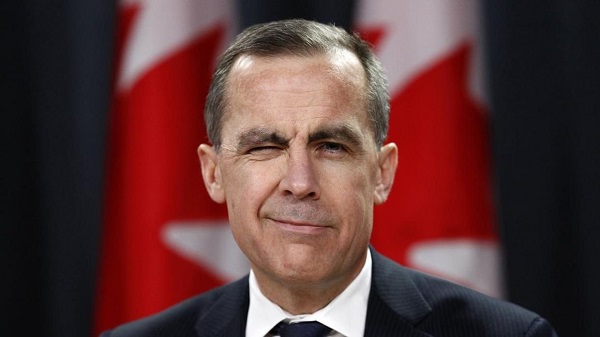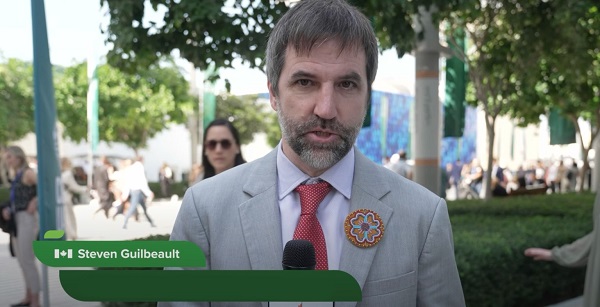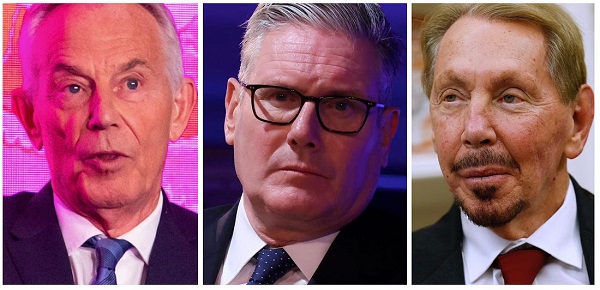Business
Canadian health care continues to perform poorly compared to other countries

From the Fraser Institute
By Mackenzie Moir and Bacchus Barua
At 30 weeks, this year marked the longest total wait for non-emergency surgery in more than 30 years of measurement.
Our system isn’t just worsening over time, it’s also performing badly compared to our universal health-care peers.
Earlier this year, the U.S.-based Commonwealth Fund (in conjunction with the Canadian Institute for Health Information) released the results of their international health policy survey, which includes nine high-income universal health-care countries—Australia, Canada, France, Germany, the Netherlands, New Zealand, Sweden, Switzerland and the United Kingdom. Unfortunately, Canada continued to come in near or dead last on key measures of timely access. Most notably, Canada ranked worst for wait times for specialists and non-emergency surgery.
For example, whereas almost half (46 per cent) of Canadians surveyed indicated they waited two months or more for a specialist appointment, that number was just 15.1 per cent in the Netherlands and 13.2 per cent in Switzerland. And while one in five (19.9 per cent) Canadians reported waiting more than one year for non-emergency surgery, just half a per cent (0.6) of Swiss respondents indicated a similar wait. And no one in the Netherlands reported waiting as long.
What explains the superior performance of these two countries compared to Canada?
Simply put, they do universal health care very differently.
For example, the Netherlands, which ranked first on both indicators, mandates that residents purchase private insurance in a regulated but competitive marketplace. This system allows for private insurance firms to negotiate with health-care providers on prices, but these insurance firms must also accept all applicants and charge their policy holders the same monthly fee for coverage (i.e. they cannot discriminate based on pre-existing conditions).
In Switzerland, which ranked among the top three on both measures, patients must also purchase coverage in a regulated private insurance marketplace and share (10-20 per cent) of the cost of their care (with an annual maximum and protections for the most vulnerable).
Both countries also finance their hospitals based on their activity, which means hospitals are paid for the services they actually provide for each patient, and are incentivized to provide higher volumes of care. Empirical evidence also suggests this approach improves hospital efficiency and potentially lowers wait times. In contrast, governments in Canada provide hospitals with fixed annual budgets (known as “global budgets”) so hospitals treat patients like costs to be minimized and are disincentivized from treating complex cases.
It’s no surprise that in 2022, the latest year of available data, a lot more Swiss (94 per cent) and Dutch (83 per cent) reported satisfaction with their health-care system compared to Canadians (56 per cent).
No matter where you look, evidence on the shortcomings of Canada’s health-care system is clear. Fundamental reform is required for Canadians to have timelier care that matches what’s available in universal health-care countries abroad.
Business
PM Carney’s Astounding Conflicts Are Clearly Exposed. What Will Parliament, The Media, And Voters Do About It?

Will opposition parties force an election? Will the media demand Carney account for his conflicts? Will voters continue to allow Carney and Brookfield to profit from Carney’s leadership as they condemn the US President for doing the same?
NEWS ALERT!!!! https://t.co/HrhXGCyfPq
— Andrew Scheer (@AndrewScheer) October 1, 2025
From Conservative Party Communications
Conservative members of the Ethics Committee released the following statement on its ongoing investigation into Prime Minister Mark Carney’s conflicts of interest:
“Yesterday, the Ethics Committee heard scathing testimony from Canada’s leading ethics and accountability experts on the façade that is Mark Carney’s so-called blind trust – and his conflict of interest screen which is nothing more than a smokescreen.
“Leading ethics and conflict of interest experts told MPs that these measures are entirely insufficient, and that Prime Minister Carney stands to make millions from his investments while keeping them largely hidden from Canadians. The breadth of Carney’s conflicts and potential to benefit financially are entirely unprecedented in federal Canadian politics.
“Carney was involved in structuring Brookfield’s Global Transition Funds, from which he is set to receive carried interest payments potentially worth tens of millions of dollars. Carney knows exactly what assets are in these funds, but he has refused to disclose them. If the funds make money, he makes money – and the decisions he makes as Prime Minister will impact their value.
“Democracy Watch founder Duff Conacher testified that the Conflict of Interest Act allows Carney to ‘secretly profit’ from ‘secret investments’ – dismissing blind trusts as ‘not blind at all’ – and confirmed that Carney knows exactly what is in his blind trust. It is only the public that is blind to the full extent of the Prime Minister’s holdings.
“As currently written, the Act allows the Prime Minister to participate in ‘99% of the decisions’ that impact his private investments. Conacher considers the legislation a ‘sad joke’ – noting that ‘any time [Carney] is making a decision that affects businesses in Canada, he is in a financial conflict of interest.’
“As York University’s Dr. Ian Steadman told the Committee, blind trusts simply ‘aren’t enough’ to prevent public office holders from advancing their personal financial interests.
“Witnesses also slammed the Prime Minister’s conflict of interest screen. The screen is enforced by Carney’s top two aides who serve at his pleasure and are not independent. It lacks any transparency or oversight mechanism, which Conacher noted is a violation of the Act.
“The Ethics Commissioner has the power to strengthen the ethics screen and enforce full transparency today. He has failed to do so. This is deeply troubling, and must be addressed.
“These revelations are just the tip of the iceberg in an ongoing investigation. Conservatives will continue to expose Mark Carney’s unprecedented conflicts of interests and fight to close the loopholes in the Act that the Prime Minister is taking advantage of.”
Alberta
Ottawa’s Firearms Buyback Plan: Federal Government Puts Provincial Authority In Its Sights

From the Frontier Centre for Public Policy
It’s about politics and provinces are right to refuse to play along
Federal Public Safety Minister Gary Anandasangaree’s leaked admission that Ottawa’s firearms buyback is unenforceable was no slip. It exposed the way federal power is deployed for partisan gain while provinces are left to pay the bill.
The leak matters because it exposes a pattern, not an exception. Ottawa drafts policies to suit its politics and expects provinces to carry the weight. Police budgets, university research chairs, hospital systems and housing markets are treated as levers to be pulled from Ottawa. The effects are felt locally, but the decisions are made elsewhere.
Consider the pattern. The Online Harms Act, rejected more than once, is introduced yet again, as if repetition can substitute for consent. Health care dollars are tied to federal strings that reorder provincial systems with no regard for local capacity. Immigration quotas climb at a pace provinces cannot house or school. Environmental rules descend without negotiation, upending years of co-operative planning. Each measure arrives as an edict. Consultation is reduced to announcement.
Resistance has already begun. Saskatchewan moved early, adopting legislation that makes any federal confiscation program subject to provincial authority, including RCMP operations. In Alberta, Premier Danielle Smith has gone further, declaring flatly: “We will not allow police in Alberta to confiscate previously legal firearms. I have directed two of my ministers to relentlessly defend Albertans’ right to lawful and safe possession of firearms and the right to self-defence.”
Even before the introduction of the Sovereignty Act, Tyler Shandro, then Alberta’s justice minister, announced that the province would not use its police or prosecutors to carry out confiscations. Although former premier Jason Kenney opposed a Sovereignty Act, his government likewise refused to act as Ottawa’s enforcer.
Alberta and Saskatchewan have since given themselves legislative tools, Sovereignty Acts, which assert the right of provinces to decline enforcement of federal laws they judge unconstitutional. These statutes formalize existing constitutional powers. Provinces without Sovereignty Acts have also drawn lines. Ontario has signalled its refusal to help enforce Ottawa’s firearms program.
These positions are lawful, rooted in the Constitution’s division of powers, which assigns the administration of justice and policing to the provinces.
This clarity ought to attract others. Manitoba, with one of the highest proportions of licensed hunters in the country, has strong reason to resist Ottawa’s targeting of lawful gun owners. Communities are not made safer by seizing deer rifles from responsible hunters, nor are public services improved by diverting scarce provincial resources into a program that federal ministers concede will not work. Manitoba would do well to follow Alberta and Saskatchewan in defending its jurisdiction, whether through a Sovereignty Act or by refusing to play Ottawa’s game.
The point is practical. Prairie provinces cannot spare rural detachments to seize hunters’ rifles because the Liberal caucus fears losing seats in Montreal. They cannot put their power grids at risk to meet Ottawa’s timelines while households absorb higher bills. Universities cannot be turned into federal policy pilot projects. Provinces exist to govern their own communities, not to absorb the fallout of federal experiments.
The genius of federalism lies in the division of authority, which encourages compromise and minimizes tyrannical imposition. Ottawa governs in its sphere, provinces in theirs. Where the two overlap, cooperation must be negotiated, not imposed. Sovereignty Acts sharpen that principle. They remind Ottawa that partnership is earned, not dictated.
What Anandasangaree’s admission exposed was not only the cynicism of one firearms program. It revealed a method of governing: federal power deployed for partisan gain, with provinces reduced to instruments. That cannot endure. Canada was never meant to be a chain of command. It was built as a contract—one that requires respect for provincial authority.
Provinces that refuse to carry out Ottawa’s politically motivated projects are not weakening Canada; they are enforcing its terms.
Marco Navarro-Genie is vice-president of research at the Frontier Centre for Public Policy and co-author, with Barry Cooper, of Canada’s COVID: The Story of a Pandemic Moral Panic (2023).
-

 Crime2 days ago
Crime2 days agoPierre Poilievre says Christians may be ‘number one’ target of hate violence in Canada
-

 International1 day ago
International1 day agoNetanyahu hails TikTok takeover as Israel’s new ‘weapon’ in information war
-

 International11 hours ago
International11 hours agoPope Leo hails Trump’s Gaza peace plan: “I hope Hamas will accept it”
-

 Business10 hours ago
Business10 hours agoCanada’s health-care system is not ‘free’—and we’re not getting good value for our money
-

 Business1 day ago
Business1 day agoElon Musk announces ‘Grokipedia’ project after Tucker Carlson highlights Wikipedia bias
-

 National2 days ago
National2 days agoCanada’s birth rate plummets to an all-time low
-

 Business1 day ago
Business1 day agoBill C-8 would allow minister to secretly cut off phone, Internet service
-

 illegal immigration2 days ago
illegal immigration2 days agoIreland to pay migrant families €10,000 to drop asylum claims, leave country






